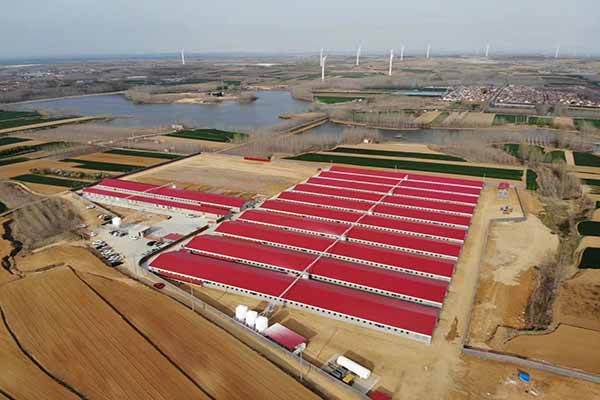How to Start a Chicken Egg Farm: A Step-by-Step Guide
Time : 2025-04-14
Are you thinking about starting your very own chicken egg farm? That’s a fantastic idea! Raising chickens for eggs can be a rewarding and profitable venture. But where do you start? Don’t worry; we’ve got you covered with this comprehensive guide on how to start a chicken egg farm. Let’s dive in!
1. Understand the Market
Before you jump into starting your chicken egg farm, it’s essential to understand the market you’re entering. Research the demand for eggs in your area. Are there organic egg farms nearby? What’s the price of eggs in your local market? Understanding these factors will help you determine if there’s a viable market for your eggs.
2. Create a Business Plan
A solid business plan is the blueprint for your chicken egg farm. It should include your business goals, financial projections, marketing strategy, and operational plan. This document will be crucial when seeking financing or investors.
3. Choose the Right Location
The location of your farm is key. Look for a place with ample space for your chickens to roam and for your farm buildings. It should be accessible for customers and suppliers, but also secluded enough to provide a safe environment for your chickens. Consider the following factors:
– Proximity to Customers: Being close to your customers can reduce shipping costs and ensure fresh eggs reach your market quickly.
– Zoning Regulations: Check local zoning laws to ensure you can operate a farm in your chosen location.
– Water and Power Supply: A reliable water and power supply is essential for your farm operations.
4. Select Your Chicken Breed
Not all chicken breeds are created equal when it comes to egg production. Choose a breed that’s known for high egg production and good temperament. Some popular breeds for egg farming include:
– Hybrid Layers: These chickens are bred specifically for egg production and are known for high egg yields.
– Orpingtons: They are gentle, docile birds that lay large eggs.
– Red Sex Link: This breed is known for laying large, white eggs with excellent feed conversion.
5. Build Your Coop and Run
Your chickens will need a safe and comfortable place to live. Here’s what to consider when building your coop and run:
– Size: Ensure the coop is large enough for the number of chickens you plan to keep. Allow about 3 to 4 square feet per chicken.
– Ventilation: Good ventilation is crucial to keep the coop dry and cool, especially during hot weather.
– Security: Your chickens need to be safe from predators. A secure fence and possibly a locking door are essential.
6. Feed Your Chickens Properly
A well-balanced diet is essential for healthy chickens and high-quality eggs. Here’s what you need to know:
– Commercial Feed: Purchase high-quality chicken feed that’s formulated for laying hens.
– Supplements: Provide supplements like grit for digestion and oyster shell for calcium.
– Clean Water: Fresh, clean water should be available at all times.
7. Monitor and Maintain Your Farm
Regular monitoring and maintenance are key to a successful chicken egg farm. Here are some tasks to keep on your to-do list:
– Health Checks: Regularly check for signs of illness or injury in your chickens.
– Cleaning: Keep the coop and runs clean to prevent disease and maintain good egg quality.
– Record Keeping: Keep detailed records of your chicken flock, feed consumption, and egg production.
8. Market Your Eggs
Marketing your eggs is as important as producing them. Here are some strategies to consider:
– Local Markets: Set up a stall at local farmers’ markets to reach customers directly.
– Farm-to-Table Programs: Partner with local restaurants and cafes to supply fresh eggs.
– Online Sales: Create a website or use social media to sell eggs directly to consumers.
9. Legal and Regulatory Compliance
Make sure you comply with all local, state, and federal regulations regarding egg farming. This includes obtaining necessary permits, following biosecurity protocols, and understanding food safety regulations.
10. Stay Informed and Adapt
The agriculture industry is always evolving. Stay informed about new technologies, farming techniques, and market trends. Be ready to adapt your farming practices as needed to stay competitive and profitable.
In conclusion, starting a chicken egg farm is a journey that requires careful planning, dedication, and a passion for farming. By following these steps and continuously learning and adapting, you’ll be well on your way to a successful farm operation.












